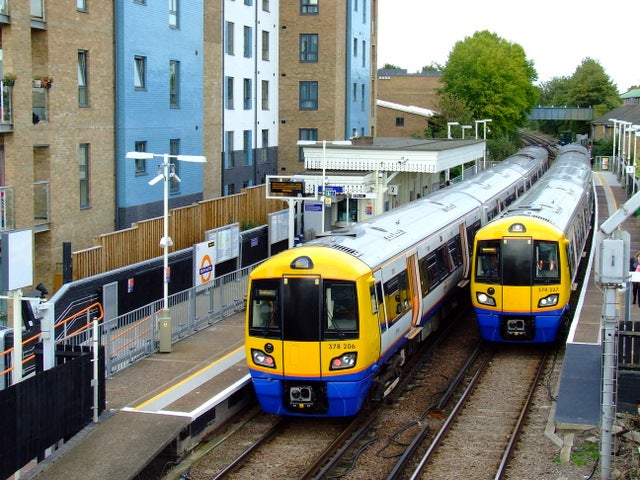Rail fares set to increase by 1.1% in 2016
The announcement comes after tickets increased an average of 2.2% in 2015

Your support helps us to tell the story
From reproductive rights to climate change to Big Tech, The Independent is on the ground when the story is developing. Whether it's investigating the financials of Elon Musk's pro-Trump PAC or producing our latest documentary, 'The A Word', which shines a light on the American women fighting for reproductive rights, we know how important it is to parse out the facts from the messaging.
At such a critical moment in US history, we need reporters on the ground. Your donation allows us to keep sending journalists to speak to both sides of the story.
The Independent is trusted by Americans across the entire political spectrum. And unlike many other quality news outlets, we choose not to lock Americans out of our reporting and analysis with paywalls. We believe quality journalism should be available to everyone, paid for by those who can afford it.
Your support makes all the difference.It has been announced rail fares will increase more than wages in 2016.
The Rail Delivery Group, who represent National Rail and train operators, have said rail fares will increase by no more than 1.1% as of 2 January, while George Osborne announced in his 2015 budget report that public sector wages will be capped at 1%.
The new pricing will affect regulated fares, including season tickets and peak time tickets, which are tied to Retail Price Index inflation.
However, unregulated fares, such as off-peak tickets and walk on fares, could increase by significantly more as they are subject to a price increase decided by the Rail Delivery Group.
In 2015 train ticket prices increased an average of 2.2%, with season tickets going up by 2.5%.
In a statement, Paul Plummer, chief executive of the Rail Delivery Group, said, “We know that nobody likes to pay more to travel by train, especially to get to work, and at 1.1 per cent this is the smallest average increase in fares for six years.
“On average 97p in every pound from fares is spent on trains, staff and other running costs. With passenger numbers doubling in the last 20 years, money from fares now almost covers the railway’s day-to-day operating costs.”
Martin Abram of the Campaign for Better Transport believes the rail ticket inflation is still too high.
"While regulated rail fares rises are limited to 1%, some unregulated, walk-on fares are rising further,” Abrams told the BBC.
"To avoid pricing people off the railways, the train operating companies and the Government need to work closely together to provide fairer, simpler and cheaper fares through flexible ticketing and making sure people are always sold the cheapest ticket available."
Join our commenting forum
Join thought-provoking conversations, follow other Independent readers and see their replies
Comments